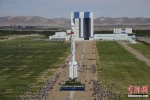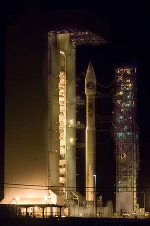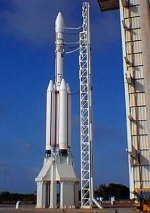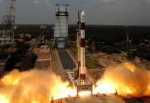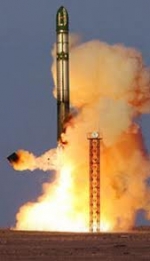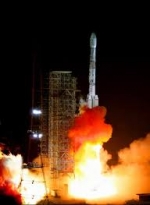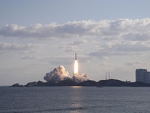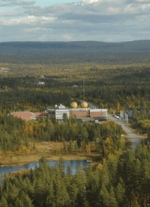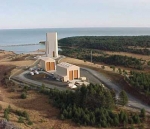Displaying items by tag: launch site
Spaceport Colorado
Spaceport Colorado is America's hub for commercial space transportation, research and development.
Horizontal launch spaceports are developing around the world and will become the foundation for a global suborbital transportation network. The U.S. is at the forefront of this next generation of connectivity. Located just 18 minutes from Denver International Airport (DIA), the 11th busiest airport in the world, Spaceport Colorado is conveniently accessible from anywhere. Colorado companies already conduct business with Europe in the morning, Asia in the evening and South America in the same business day. Future suborbital trips will reduce flight times to these destinations to a few hours. Locally, Spaceport Colorado offers hundreds of acres of development opportunity just 40 minutes from downtown Denver and less than an hour from major research universities and laboratories.
Jiuquan Launch Center
The Jiuquan Satellite Launch Center (JSLC) is a space vehicle launch facility in China.
The Jiuquan Satellite Launch Center is the first and main launch site of China. It was created in 1958. The facility is part of Dongfeng Aerospace City (Base 10), and is located in the Gobi desert about 1,600 km from Beijing.
Vandenberg AFB Space Launch Complex
The Vandenberg AFB Space Launch Complex is a launch complex located in the US Vandenberg Air Force Base (AFB). It is composed of several luanch sites (SLC-2, SLC-3, etc.).
SLC-2, the Space Launch Complex 2, is an active rocket launch site at Vandenberg Air Force Base, in California, USA. It consists of two launch pads. The East pad (SLC-2E), which has been demolished, was used for Delta, Thor-Agena and Thorad launches between 1966 and 1972. The West pad, SLC-2W, has been used for Delta, Thor-Agena, and Delta II launches since 1966, and is still in service with the Delta II.
SLC-3, the Space launch Complex 3, consists of two pads, SLC-3E (East) and SLC-3W (West). The East-West coastline at Vandenberg allows SLC-3 to launch over-ocean polar trajectories that avoid landfall until passing over Antarctica. (By contrast, Cape Canaveral has a North-South coastline permitting over-ocean launches into standard orbits.)
AFB means 'Air Force Base'.
Alcântara Launch Center
The Alcântara Launch Center (CLA) is a satellite launching base of the Brazilian Space Agency in the city of Alcântara, located on Brazil's northern Atlantic coast,
Its geographical location is 2°17′S 44°23′W. It is operated by the Brazilian Air Force (Comando da Aeronáutica). The CLA is the closest launching base to the equator. This gives the launch site a significant advantage in launching geosynchronous satellites, an attribute shared by the Guiana Space Centre.
Satish Dhawan Space Centre (Sriharikota spaceport)
The Satish Dhawan Space Centre (SDSC) is the launch centre for the Indian Space Research Organisation (ISRO).
It is located in Sriharikota, Andhra Pradesh, 80 km north of Chennai. Originally called Sriharikota High Altitude Range (SHAR, an acronym ISRO have retained to the present day) and then Sriharikota Launching Range, the centre was renamed in 2002 after the death of ISRO's former chairman Satish Dhawan.
Yasny Cosmodrome (Dombarovski base)
The Yasny launch base is located in Orenburg Region, Russia.
The base is composed of the following facilities:
- Admin & Hotel Complex including hotels, dining facilities and office premises;
- Assembly, Integration and Test Building (AITB) incorporating clean room facilities and fueling station;
- Block house on the launch pad for payload pre-launch health status control (hosts customer's personnel and equipment);
- Necessary utilities supporting the launch base operations.
The Yasny launch base is located next to the Dombarovsky air base. Dombarovsky is an interceptor aircraft base in Orenburg Oblast, Russia, located 6 km northwest of the village of Dombarovsky, near Yasny. Dombarovsky was built during the mid-60s as a Soviet ICBM bases.
Hainan Space Launch Center
The Wenchang Satellite Launch Center (WSLC), or Hainan Space Launch Center, is a Chinese spaceport under conversion for operations in 2014. It is a former sub-orbital test center, located on the Hainan island, near the city of Wenchang.
It is the fourth and southernmost space vehicle launch facility (spaceport) of China. It has been specially selected for its low latitude, which is only 19 degrees north of the equator, which will allow for a substantial increase in payload, necessary for the future manned program, space station and deep space exploration program. Furthermore, it will be capable of launching the new heavy lift Long-March 5 booster currently under development.
Unlike the Space Centers on China mainland whose rail tracks are too narrow to transport the new five meter core boosters, Wenchang will use its sea port for deliveries.
Initial launches of the CZ-5 booster from Wenchang are expected in 2014, one year after the intended commissioning of the Wenchang Center.
Tanegashima Space Center
The Tanegashima Space Center (TNSC) is one of Japan's space development facilities.
It is located on Tanegashima (Japan), an island located 115 km south of Kyūshū. It was established in 1969 when the National Space Development Agency of Japan (NASDA) was formed. It is now run by JAXA.
The activities that take place at TNSC include assembly, testing, launching and tracking of satellites, as well as rocket engine firing tests. It is Japan's largest space development center.
Esrange Space Center
Esrange Space Center (short form Esrange) is a rocket range and research centre located outside the town of Kiruna in northern Sweden.
It is a base for scientific research with high altitude balloons, investigation of the aurora borealis, sounding rocket launches, and satellite tracking, among other things. Located 200 km north of the Arctic Circle and surrounded by a vast wilderness, its geographic location is ideal for many of these purposes.
It is operated by the Swedish Space Corporation (SSC).
Kodiak Launch Complex (KLC)
The Kodiak Launch Complex (KLC) is a commercial rocket launch facility for sub-orbital and orbital space launch vehicles.
It is owned and operated by the Alaska Aerospace Corporation, a public corporation of the State of Alaska. The facility is located on Kodiak Island, Alaska.
The Kodiak spaceport has two launch pads with a mission control center with high-speed communications and data links. There is a clean room for preparing satellites for launch, a fully enclosed 17-story-tall rocket assembly building and two independent range and telemetry systems.



